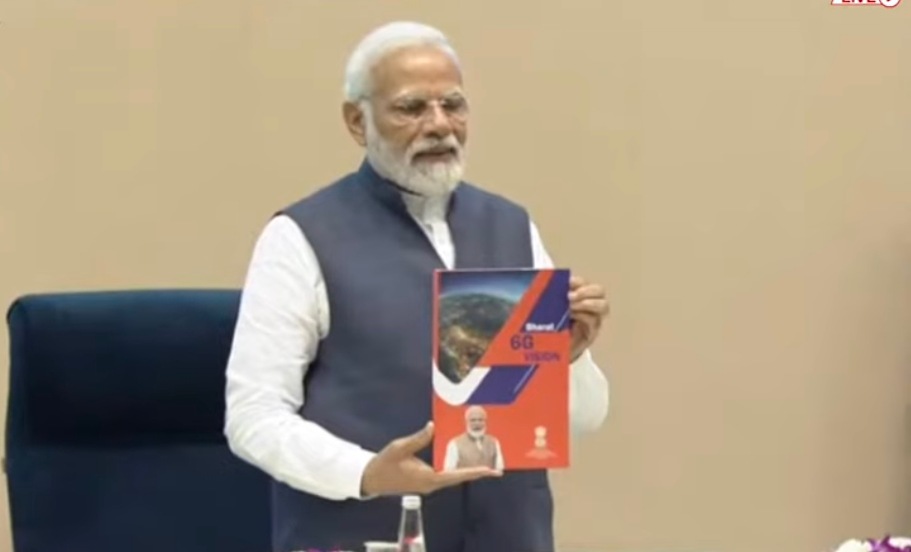Indian Prime Minister Narendra Modi inaugurated the International Telecommunication Union (ITU) Area Office and Innovation Center in New Delhi on Wednesday, March 22nd. During the programme, Prime Minister Modi announced several steps to strengthen 5G services in India and unveiled the blueprint for launching 6G internet services.
Alongside Prime Minister Modi, Indian Railways and Communications Minister Ashwini Vaishnaw, External Affairs Minister S Jaishankar, and ITU Secretary-General Doreen Bogdan-Martin were present at the inauguration ceremony. Representatives of various countries were also present in the programme.
The ITU is a United Nations (UN) Specialised agency for Information and Communication Technologies. The area office inaugurated in India will serve India, Nepal, Bhutan, Bangladesh, Sri Lanka, Maldives, Afghanistan and Iran.
In the opening speech of the event, Vaishnaw praised India for organising this event, mentioning the digital importance in the post-pandemic situation. He also appreciated India’s initiative to roll out 5G services aptly.
During her speech, ITU Secretary-General Martin applauded India’s leading role in strengthening information and communication technology in South Asia. She said that the new ITU office in New Delhi would play a positive role in the holistic development of the information technology sector in South Asia. Furthermore, she averred that without the cooperation and harnessing of digital technology Sustainable Development Goals (SDG) cannot be achieved.
She also lauded the Digital India Mission project of the Government of India saying that the project has buttressed the government’s aim to provide internet services to the common people of India.
Prime Minister Modi then inaugurated the ITU area office and unveiled the blueprint for an apt rollout of 6G internet services in India. He also inaugurated a 6G R&D test bed. The 6G internet services will reportedly allow a user to download 1TB of data per second.
During the speech, he emphasised India’s leading role in the development of information technology in South Asia. Referring to digital transactions of Rs 8bn per month, he said that India has now become the most connected democracy in the world due to providing cheap smartphones and the internet.
Modi also highlighted that seven crore e-authentications are being done every month, which signifies how improved the digital system in India is. He said that the Government of India has linked Aadhaar and mobile with the Jan Dhan Yojana scheme (JAM trinity) to make banking services accessible to the common people, thereby benefiting them.
He said that the purpose of telecom is not to show power but to empower. In this context, he also stressed that the number of internet users in villages in India is more than in cities.
Besides, the prime minister launched a mobile app called ‘Call Before You Dig’. The purpose of this recently launched app is to ensure the safety of underground assets during the excavation for a certain purpose. In addition to it, he announced that India would establish 100 new laboratories for further development of 5G internet services. In this context, he said with conviction that 6G internet services will be launched smoothly based on the strong pedestal of 5G infrastructure.
During his speech on 6G internet services, Modi also revealed that in the background of India’s robust information technology infrastructure, the World Telecommunication Standardization Assembly will hold its summit in India in October 2024.
Pointing out the formulation of India’s local 5Gi project, he mentioned that India is working on its fully indigenous technology 5Gi system on par with global standards. At the end of the speech, he expressed his hope to create a favourable niche for the development of 6G internet services through strong cooperation with ITU.

